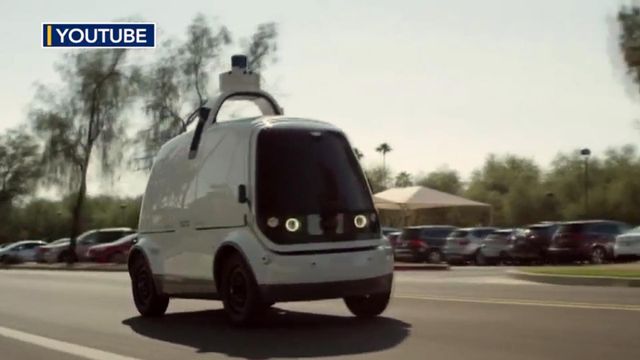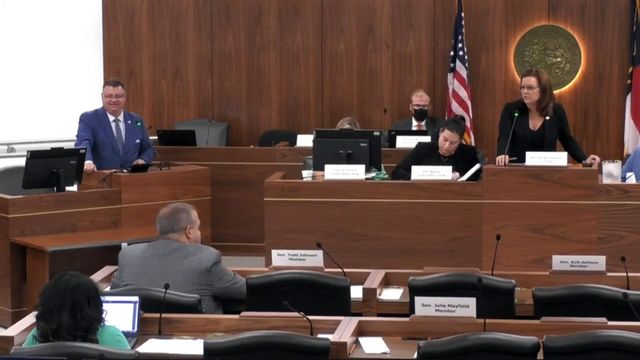Lawmaker wants NC to be among first states to have driverless delivery vehicles
A bill that passed a Senate committee on Tuesday would allow driverless delivery wagons operate on North Carolina streets while setting some ground rules for them.
Posted — Updated"When people see those commercials, they ask us, 'Hey, when are we going to get that in North Carolina?'" said Rep. Jason Saine, R-Lincoln. "So, hopefully, we get it here sooner rather than later.”
Under the proposal, the vehicles couldn't go faster than 40 mph, would have to be fully insured and must follow all traffic laws. They also would have to pull over and let drivers pass them once five or more cars are behind them.
"It’s not impeding traffic, but not so fast it's out of control or giving the public concern," he said. "Of course, it has to obey the speed limit, so it can't go over the speed limit either."
"The technology's gotten so much better," he said. "They are safe now, on-the-road tested. Six other states are already doing it."
"It's gone through lots of tests. I think it's finally ready to go to market and [is] something that will be more widespread in the future, though I don't expect it to happen overnight," he said.
Related Topics
• Credits
Copyright 2024 by Capitol Broadcasting Company. All rights reserved. This material may not be published, broadcast, rewritten or redistributed.






